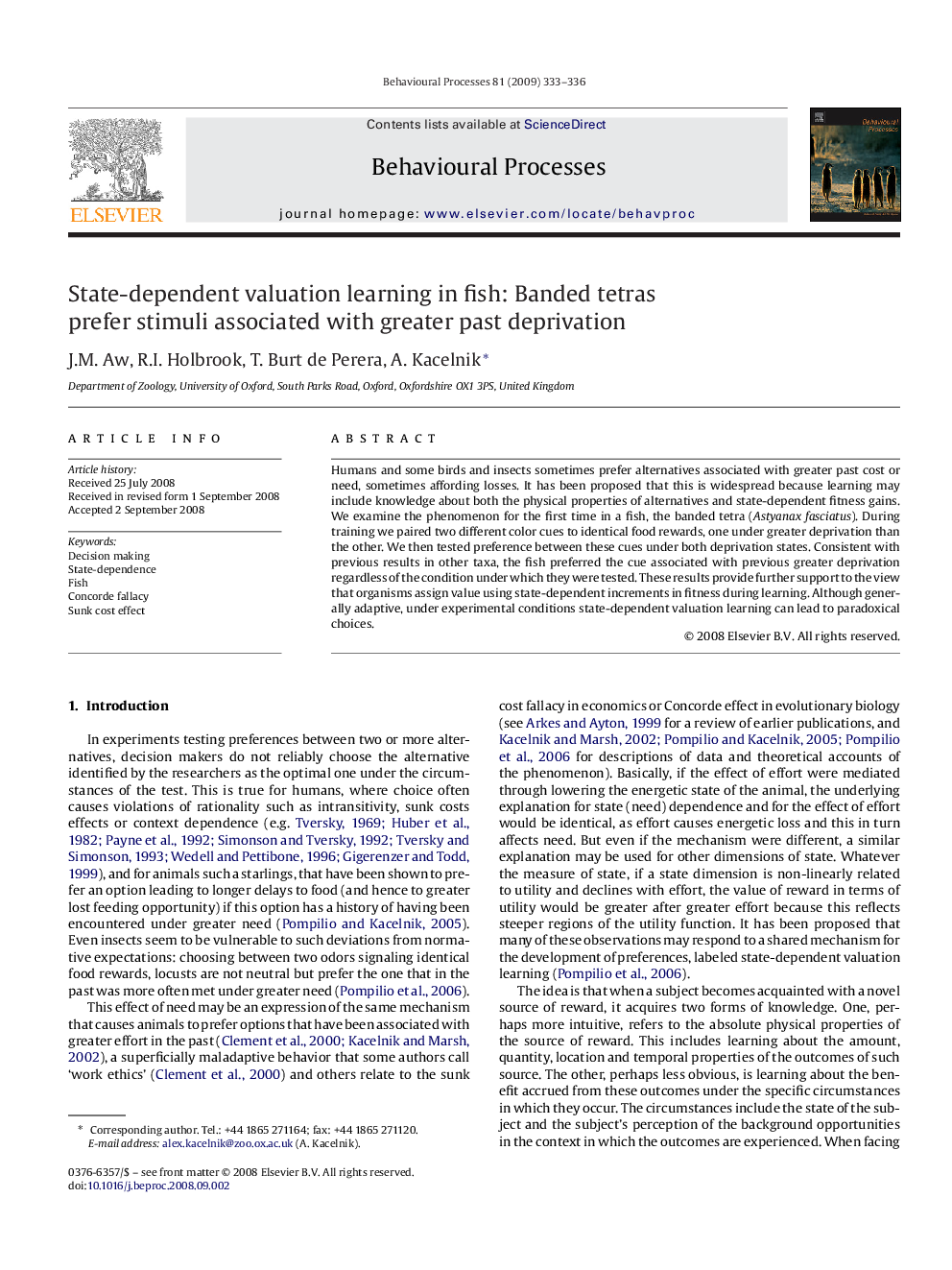| Article ID | Journal | Published Year | Pages | File Type |
|---|---|---|---|---|
| 2427369 | Behavioural Processes | 2009 | 4 Pages |
Humans and some birds and insects sometimes prefer alternatives associated with greater past cost or need, sometimes affording losses. It has been proposed that this is widespread because learning may include knowledge about both the physical properties of alternatives and state-dependent fitness gains. We examine the phenomenon for the first time in a fish, the banded tetra (Astyanax fasciatus). During training we paired two different color cues to identical food rewards, one under greater deprivation than the other. We then tested preference between these cues under both deprivation states. Consistent with previous results in other taxa, the fish preferred the cue associated with previous greater deprivation regardless of the condition under which they were tested. These results provide further support to the view that organisms assign value using state-dependent increments in fitness during learning. Although generally adaptive, under experimental conditions state-dependent valuation learning can lead to paradoxical choices.
